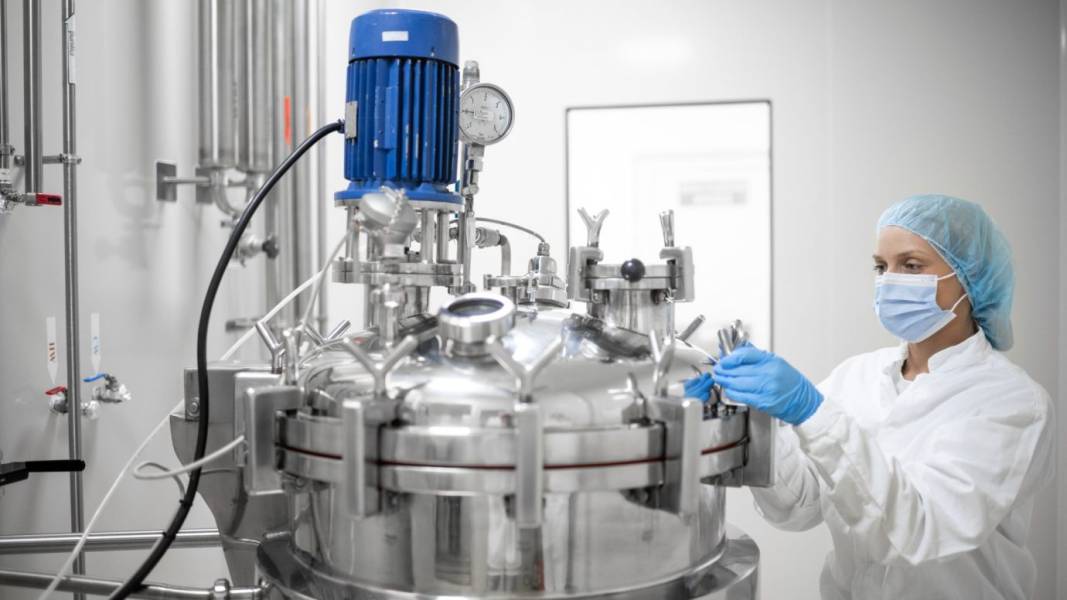In the world of chemistry and manufacturing, consistency and safety are paramount. Whether you’re producing pharmaceuticals, specialty chemicals, or materials for industry, quality assurance in chemical synthesis is the bedrock upon which success and trust are built.
To help you ensure the safety and quality of your products, let’s explore the critical role of quality assurance in ensuring safe and consistent products in the UK’s chemical synthesis industry.

Meeting Regulatory Requirements
Chemical synthesis companies must adhere to complex regulations and standards. From health and safety guidelines to environmental regulations, compliance is non-negotiable. QA programs are designed to guarantee that every product and process aligns with these requirements.
Consistency Across Batches
Consistency is a hallmark of quality for any reputable chemical synthesis company, like industry stalwart Apollo Scientific. After all, a product that varies from batch to batch not only raises quality concerns but also disrupts manufacturing processes downstream. QA measures ensure that each batch mirrors the previous one, promoting predictability and reliability for customers.
Minimising Contamination Risks
Chemical synthesis often involves hazardous materials. QA protocols meticulously assess the risk of contamination during the production process. Whether it’s ensuring the cleanliness of equipment or safeguarding against cross-contamination, QA plays a vital role in protecting workers and consumers.
Testing And Analysis
Aside from protecting workers and consumers, QA relies heavily on testing and analysis. Advanced analytical techniques are employed to verify the identity, purity, and quality of synthesised chemicals. This includes methods like chromatography, spectroscopy, and mass spectrometry, which can detect even trace impurities.
Documenting Every Step
Documentation is a cornerstone of quality assurance. Every step of the chemical synthesis process, from raw material acquisition to the final product, is meticulously recorded. This comprehensive documentation not only facilitates quality control but also aids in troubleshooting and traceability.
Real-Time Monitoring And Feedback
Along with documenting evert step, modern QA systems often incorporate real-time monitoring and feedback loops. This means that any deviations from established quality parameters can be swiftly identified and corrected. This proactive approach minimises the potential for defective products.
Investing In Training And Education
Quality assurance is only as strong as the individuals implementing it. Companies invest in training and educating their staff to ensure they understand the importance of QA and are capable of executing it effectively. This extends from the laboratory technicians to the management team.
Customer Confidence And Reputation
Quality assurance is more than a regulatory obligation; it’s also a tool for building customer confidence and safeguarding a company’s reputation. In an age where information travels fast, a single product recall or safety incident can have lasting consequences. QA provides a shield against such risks.
Environmental Responsibility
Sustainable and responsible business practices are gaining importance in every industry, including chemical synthesis. QA extends to environmental responsibility by ensuring compliance with regulations related to waste disposal, emissions, and energy efficiency.
To Sum Up
Quality assurance in chemical synthesis is an intricate and indispensable process. It safeguards product quality, protects workers, and upholds regulatory compliance. Moreover, it’s a commitment to the safety and well-being of consumers and the environment.
As businesses in the UK’s chemical synthesis industry continue to innovate and expand, maintaining the highest standards of quality assurance will remain a fundamental pillar of their success.
It’s not merely about producing chemicals; it’s about producing chemicals that meet the stringent criteria of safety, consistency, and excellence, a commitment that will endure in the ever-evolving landscape of chemical synthesis.
HedgeThink.com is the fund industry’s leading news, research and analysis source for individual and institutional accredited investors and professionals





































